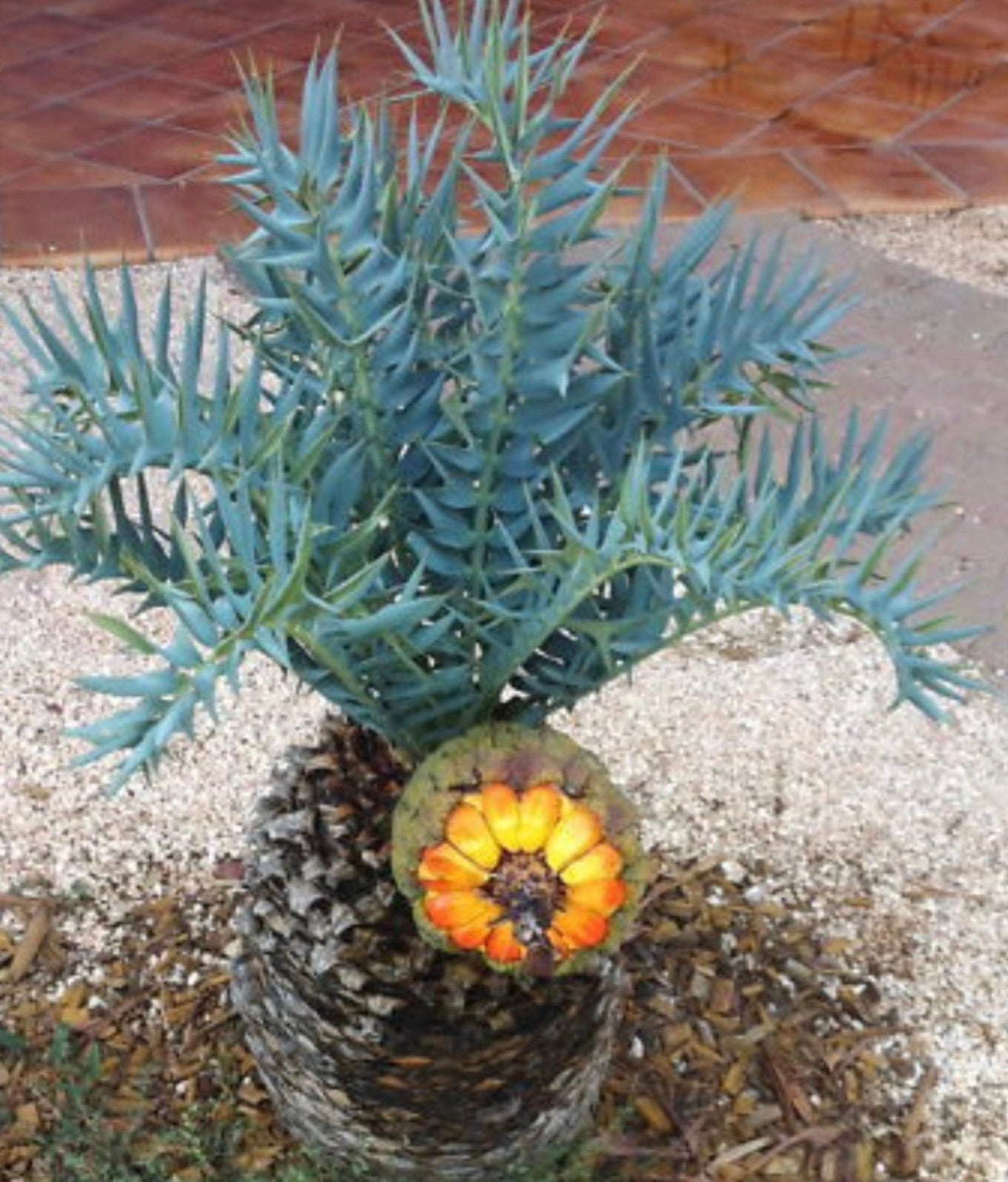- Seeds
Encephalartos horridus SEEDS
Encephalartos horridus SEEDS
Couldn't load pickup availability
Product Description
The Encephalartos horridus is a strikingly architectural cycad, revered for its otherworldly appearance and rarity. Native to the arid Eastern Cape of South Africa, this plant displays an extraordinary rosette of rigid, metallic blue-gray leaves with dramatically twisted, spiny leaflets that give it a fierce, almost prehistoric character. Each leaflet is deeply lobed and curved, often creating jagged silhouettes that shimmer under sunlight, making Encephalartos horridus one of the most visually unique cycads. The plant forms a stout, woody caudex that can remain solitary or occasionally branch with age, adding to its sculptural presence. This slow-growing species can live for centuries, producing conical, golden to brown reproductive cones that contrast beautifully with its blue foliage. Its bold coloration, compact size, and formidable leaf texture make it highly prized among collectors, often described as a living fossil due to its ancient lineage and primeval design.
IMPORTANT: Picture show mother plant not for sale, the offer is for seeds.
Botanical family: Zamiaceae
Botanical genus: Encephalartos
Botanical species: Encephalartos horridus
SKU:WP-2021-S
Cultivation
Cultivation


